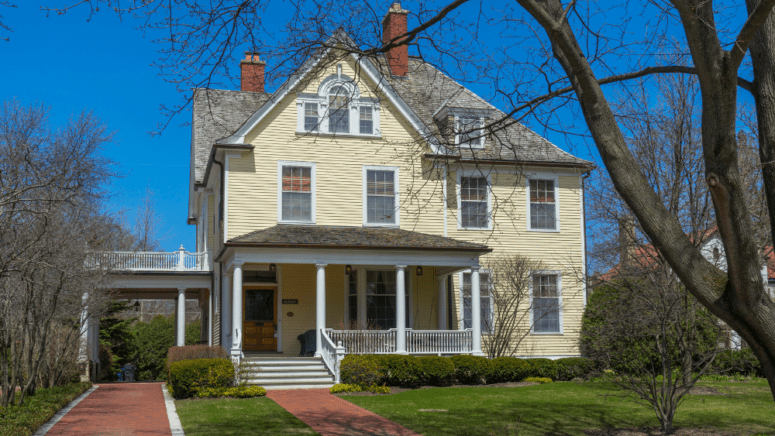Closing Costs in Chicago: A Guide for Sellers
- Published on
- 5 min read
-
 Joseph Gordon EditorClose
Joseph Gordon EditorClose Joseph Gordon Editor
Joseph Gordon EditorJoseph Gordon is an Editor with HomeLight. He has several years of experience reporting on the commercial real estate and insurance industries.
Selling your Chicago home? Understanding closing costs is key to a smooth transaction. Closing costs represent a variety of fees and expenses you’ll need to pay when finalizing your home sale. These can range from real estate agent commissions to property taxes and more.
In this quick guide, we’ll explore how closing costs work in Chicago and outline the expenses you can expect when selling your home in the city. With this information, you’ll be better prepared to handle your sale’s financial aspects and move forward confidently.
Disclaimer: This article provides estimates of a seller’s closing costs that are meant for educational and research purposes only; our calculations are not a guarantee.
What are closing costs?
Closing costs are the various fees involved when finalizing a property sale. These can include a range of expenses, such as property taxes and insurance, which are typical for most transactions. Some costs, like transfer taxes, can differ based on the location of your home. To learn more about closing costs, it’s important to understand how they impact your final sale amount.
Mortgage/Loan payoff amount
When figuring out how to sell your house, one important financial step is paying off your mortgage through what’s known as the loan payoff amount. This figure represents the remaining principal balance on your mortgage, along with any accrued interest up to the payoff date. The loan payoff amount may also include additional fees that must be settled to close out the loan fully.
To finalize the sale, the loan payoff amount must be paid in full.
Property taxes
According to WalletHub, Illinois ranks 50th in the country in terms of property taxes, placing it below states like Connecticut and New Hampshire.
Real estate in Chicago is taxed at a rate of 2.7%, with a median home value of $375,000. To get a better idea of what you might owe, consult a property tax calculator.
Reconveyance fee
After the sale of your home is completed and your mortgage is paid off, you will typically need to cover a reconveyance fee. This fee is associated with receiving a reconveyance deed, which officially releases you from your mortgage debt.
The reconveyance deed must be recorded by your mortgage company, and the cost of this fee can vary depending on your location, depending on the city, state, or county.
Realty transfer tax
You also might be responsible for what’s known as a realty transfer tax. These are fees assessed by local governments whenever a property changes ownership.
These taxes are sometimes called a “Deed Excise tax” or a “Documentary Stamp tax.” Who ultimately pays these taxes depends on the state, city, or county where the sale occurs.
In Chicago, for example, the seller is typically responsible for covering transfer taxes as part of the closing costs, but depending on the terms of the sales agreement, this can sometimes fall to the buyer.
Real estate agent commission
Unless you’re selling your home for sale-by-owner, you’ll likely have used a local agent. Research indicates that an agent’s expertise can significantly impact your sale: In 2023, homes sold with an agent’s assistance had a median price of $405,000, compared to $310,000 for FSBO sellers.
Working with a real estate agent means paying a commission. This fee covers various services, such as accurately pricing your home, marketing it effectively, and negotiating with buyers to ensure you receive the best possible price and terms.
It should be noted, however, that on March 15, 2024, the National Association of Realtors (NAR) announced a landmark lawsuit settlement that will change the way real estate agent commissions are handled in the future. These changes will “decouple” seller and buyer agent compensation. Industry experts predict that this decoupling will likely lower agent fees and give buyers the ability to negotiate commission amounts directly. Learn more.
HomeLight’s transaction data reveals that the national average real estate agent commission is 5.8% of the property sales price. This commission typically includes fees for both the listing and buyer’s agents, with sellers customarily covering the cost.
Use HomeLight’s commission calculator by entering your city for commission data tailored to your specific area.
Attorney Fees
Some states require an attorney to be present when closing the sale of a property.
Real estate attorneys are not essential for closing in Illinois, but your attorney might suggest working with one anyway.
Homeowners Association/Condo Fees
One of the biggest sticking points for sellers is the fees levied by their homeowners’ association (HOA) or condominium association fees.
Like other fees we’ve discussed, these will vary, not just because of the different rules and regulations of your local HOA but also because HOA regulations vary greatly depending on the state. These fees (or dues) are usually prorated at the time of the sale.
The average monthly HOA fee in Illinois is $387.
Seller’s concessions
Sellers may owe money at closing due to financing concessions agreed upon during negotiations. These concessions can include covering costs for closing fees, necessary repairs, or providing home warranties.
One common seller concession is offering repair credits. This option is often utilized when a buyer’s offer includes a contingency, typically linked to the results of a home inspection.
If the seller declines to make the necessary repairs identified during the inspection, the buyer may withdraw from the sale while retaining their earnest money. In such cases, sellers can offer repair credits at closing to cover the estimated costs instead of handling the repairs themselves. However, these concessions are less frequent in a strong seller’s market, as contingencies may deter potential buyers.
Miscellaneous closing costs/fees
These are some of the most common closing costs you’ll face as a seller in Chicago. However, keep in mind that many closing costs can be negotiated. Your buyer may be open to negotiating some of these expenses, and a real estate agent or attorney could help you secure a more favorable deal.
If you want to avoid the hassle of managing closing costs or working with an agent, HomeLight offers a Simple Sale program. This service streamlines the process, allowing you to sell your home in as few as three steps. Just provide basic information about your property, consult with one of our Home Consultants, and you can close the deal in as little as 10 days.
Header Image Source: (bennnn@hotmail.com / Depositphotos)
- "Property Taxes by State (2024)," WalletHub, John S. Kiernan (February 2024)
- "Chicago Housing Market: Prices, Trends, Forecast 2024," Norade Real Estate Investments, Marco Santarelli (July 2024)
- "Deed of Reconveyance," Corporate Finance Institute (November 2023)
- "Highlights From the Profile of Home Buyers and Sellers," NAR (November 2023)
- "National Association of REALTORS® Reaches Agreement to Resolve Nationwide Claims Brought by Home Sellers," NAR (March 2024)
- "Do I need an attorney for my Illinois real estate closing?," Michael H. Wasserman, P.C. Real Estate Law Firm, Michael H. Wasserman (January 2024)
- "Are High HOA Fees Scaring Homeowners Away?," Today's Homeowner, Stephanie Horan (November 2023)




